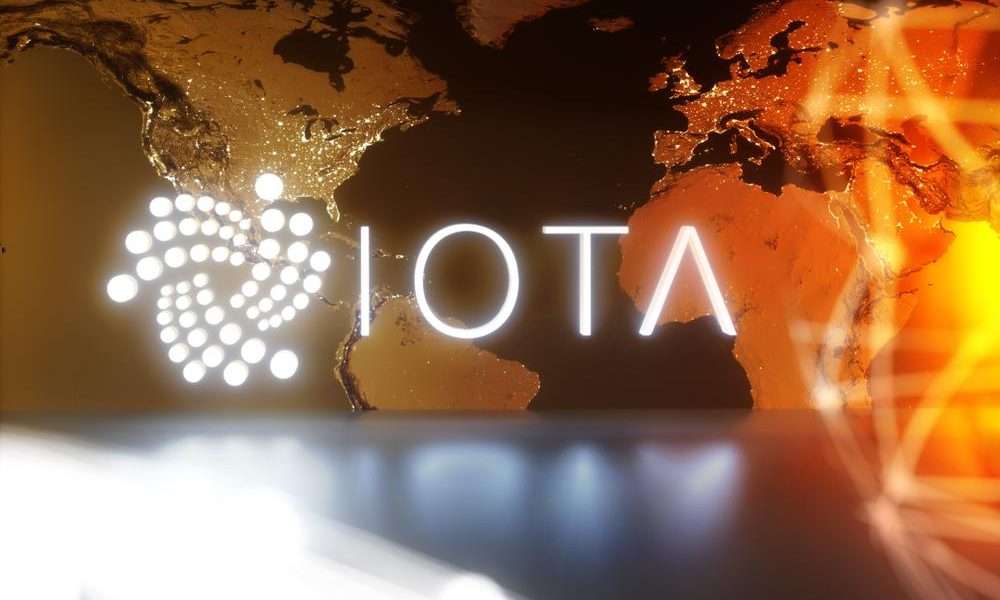IOTA will act as the basic technology layer for digital product passports for European blockchains and companies

Source: Alexander Kirch – Shutterstock
- Digimarc and IOTA are working on an architecture for Digital Products Passports to build decentralized identity solutions.
- To implement this project, Digimarc plans to use its Illuminate Platform and IOTA’s decentralized identifiers (DID) and verifiable credentials.
Last year in March 2022, the European Commission announced the launch of its Digital Products Passports initiative and plans to make them mandatory as soon as 2024. This will apply to product categories regulated under the Ecodesign for Sustainable Products Regulation.
The EU said that the digital product passport requirements for specific products will span various industries such as textiles, consumer electronics, construction materials, packaging, batteries for electric vehicles, etc. This digital passport will allow tracing the origin of components and raw materials used in all kinds of consumer goods. It will further make it easier to share information across different stages of the supply chain throughout the product’s life cycle.
But to realize this broader goal and vision, a decentralized infrastructure must be in place to ensure transparency and security. As a result, Digimarc and IOTA have collaborated to create a digital product passport plan, while supporting some of the EU initiative requirements. The project will include the use of decentralized architectures, open standards and accessibility.
By 2024, selected products will need one #DigitalProductPass for sustainability – excited to share one #decentralised blueprint designed by @digimarc laboratories and @iota to address key DPP principles – #ProductIdentities #standards #decentralization @gs1 pic.twitter.com/DlN0Q0eZzT
— Dominique Guinard (@domguinard) 7 February 2023
The plan has been built in conjunction with the EU Blockchain Pre-Commercial Procurement Project to develop the European Blockchain Service Infrastructure (EBSI). For the Digital Product Passport project, Digimarc and IOTA will create and implement a DPP architecture.
To provide a higher level of decentralization and resilience, Digimarc will leverage IOTA’s Decentralized Ledger Technology (DLT) layer that will serve as a trust layer for key lifecycle events while anchoring all supply chain events in the EPICS format. The decentralized infrastructure must ensure that the events are tamper-proof.
How Digimarc and IOTA will work together?
Digimarc will leverage its Illuminate Platform, along with its Product Cloud, to generate GS1 Digital Link identities at scale. Using the beta EPCIS 2.0 API, Digimarc will ingest the product lifecycle and anchor each event to the IOTA DLT using Digimarc’s blockchain integration hub, ensuring that data remains secure.
Digimarc has also leveraged IOTA’s implementation of the Decentralized Identifiers (DID) as well as verifiable credentials. By using DID, they will therefore be able to identify the author of an event and ensure that the person/entity is authorized and competent to perform specific tasks.
No spam, no lies, just insight. You can unsubscribe at any time.
By using other services such as Digimarc Engage and Digimarc Validate, the platform will provide the right user experience and product authenticity check.
Digimarc said it has tested the implementation of this DPP plan with electric vehicle batteries. Digital Products Passports (DPP) and their target markets are still being defined. This year, more clarity will emerge about future work for the DPP as stakeholders will write proposed architectures and regulations, and launch real-world pilots.
Crypto News Flash does not endorse and is not responsible or liable for the content, accuracy, quality, advertising, products or other materials on this site. Readers should do their own research before taking any action related to cryptocurrencies. Crypto News Flash is not responsible, directly or indirectly, for any damages or losses caused or alleged to be caused by or in connection with the use of or reliance on any content, goods or services mentioned.


